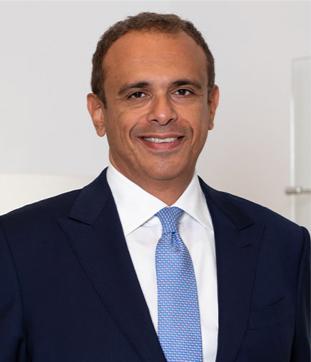Funds for Old Fashioned Start-ups
Updated 8/21/2023 8:32:00 AM
During the past fifteen to twenty years, there has been a generation of new private equity funds that were founded and developed across Africa, primarily with the backing of worldwide and European development finance institutions (DFIs) and private capital. This crowd of funds is specialized in mid-cap and small- and medium-sized enterprise (SME) equity financing, with a lesser focus on venture capital (VC), debt, infrastructure, and real estate investments.
The case for Egypt is no different than this, except for the fact that new first time fund managers, still mostly SME equity funds and to a lesser extent VCs, have recently received encouragement and financing from Egyptian banks or vehicles that are funded by Egyptian banks. The fact, however, that all these old or nascent fund management companies focus on established operations – with the exception of VCs, infrastructure, and real estate (RE) - of course, makes them copycats of each other, with not much differentiation in their fundamental investment postures.
I believe there is a new direction of funds that can invest in newly established entities, not necessarily VCs, infra, or RE, but newly established industrial projects, financial institutions, or service companies. It is given that if this new generation of funds are to exist, they have to have specific investment criteria while investing in industrial and service companies, such as experienced management, private and/or public capital co-investments, need for markets for the products of such companies, the viability of business plans, may be off-take agreements and any additional requirements that would make the financing entity comfortable to provide such an investment.
DFIs by themselves participate in new projects, whether with equity financing or project financing debt, and I believe they should promote fund management companies to invest in new industrial and service companies either by allocating a percentage of their existing funds or by establishing new specialized funds to take this direction.
In Egypt, this type of investment is much needed to promote export-driven/import substitution industries; the under-establishment soda ash complex is a good example of public and private capital, and hopefully private equity (PE) in the future can cooperate to establish a large industrial complex that will to a large extent lead to reducing imports of similar commodities needed as an input for many industries.
This is also much needed as a catalyst to develop new industrial areas, such as the Suez Canal Economic Zone (SCZONE). Many European and Asian industrial groups, not necessarily the very large ones, would see it as a lower risk if a local investor would participate in the equity of their new industrial projects in such zones. Locals would act the same. This is also needed for the local market to increase the level of competitiveness in many industries where more efficient competition is much needed.
One would look at the experience of Banque Misr in the 1920s through the 1940s with much appreciation for the many industrial companies it has launched and, of course, with some caution not to mix the balance sheet of an entity that plays the role of a commercial bank and a large PE player at the same time. In case of the existing experienced fund management companies, they have a long track record of following best-practice corporate governance measures, which is a crucial requirement for any new fund or any new investment.
Related ExpertTalk












